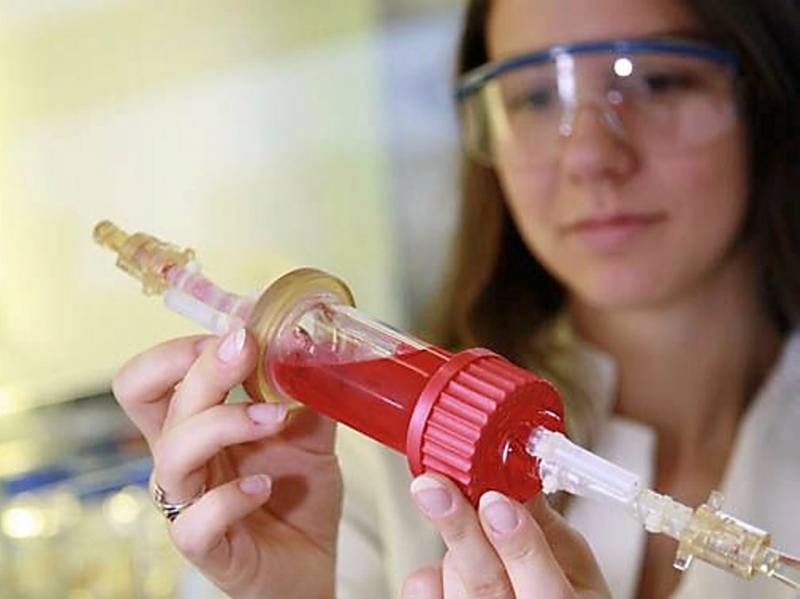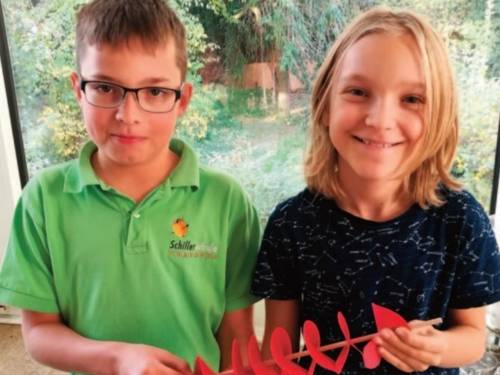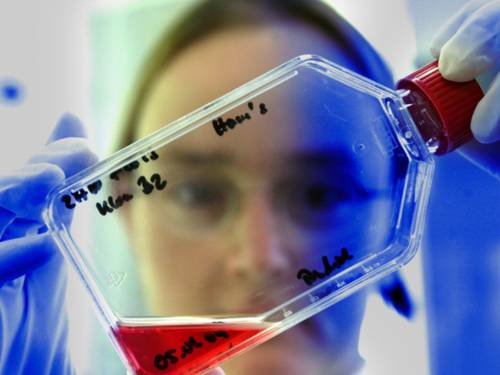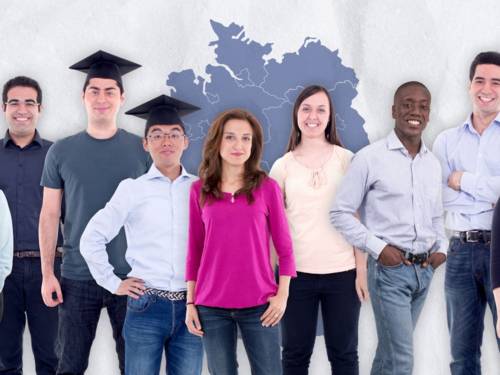All you need to know
Hannover Science Initiative
Hannover Science Initiative
The Hannover Science Initiative was founded in 2007 at the suggestion of the state capital Hannover. Meanwhile, nine universities and higher-education institutes in Hannover (Leibniz University, University of Applied Sciences and Arts, Hannover Medical School, University of Music, Drama and Media, University of Veterinary Medicine, Private University of Applied Sciences, Leibniz School of Business, GISMA Business School, Lower Saxonian Municipal University of Applied Administrative Sciences), as well as the Geo-Centre Hannover, the Fraunhofer Institute for Toxicology and Experimental Medicine, the Volkswagen Foundation, the Student Administration Hannover and the State Capital of Hannover have been actively involved in the Hannover Science Initiative.
Boosting the attractiveness of Hannover as centre of scientific activity
The objective behind the Hannover Science Initiative is to boost the attractiveness of Hannover as centre of academic and scientific activity and enhance the general conditions for students. The initiative and a large proportion of the joint projects it involves are coordinated by the Science City Hannover department of the Lord Mayor's Office.
50.266 students in the state capital
With 50.266 students (winter semester 2019/2020) and around 10,000 employees studying and working at its universities, Hannover figures among Germany's leading centres of scientific and academic activity. Nearly 50 percent of the students are female, international students make up 15,89 percent.
Fostering of excellence clusters
The RESIST, QuantumFrontiers, PhoenixD and Hearing4all excellence clusters are currently being fostered and sponsored in Hannover within the framework of the German government's Excellence Initiative. Hearing4all was fostered and sponsored also during the last Excellence Initiative.
Projects
- Video Portal
The multimedia portal studieren.forschen.wissen provides an insight into day-to-day scientific and research activities. As of early 2017, the portal wissen.hannover.de/en already contains 550 videos, with one per week being added. On facebook and Instagram the Science Initiative provides information on the new clips and important events staged by partner organisations.
- University and Science pages
Education and Science hold a central place at www.hannover.de, the portal of the region and city of Hannover. With daily updates, it provides information on academic studies, teaching, research and student life in the Hannover region. An extensive event calendar supplements the offer. Direct access to the science pages under www.science-hannover.de
- November of Science
Every two years in November, Hannover becomes a showcase for some 70 facilities from universities, scientific, educational and cultural institutions. For a few weeks, students and the interested public can get to know various fields of research and university life of Hannover. The sixth November of Science attracted 45,000 visitors. The next November of Science will take place from 5th to 25th November 2020.
- Welcome Service for foreign students and researchers
With a comprehensive plan of action, Hannover's universities, the Student Administration, the Employment Agency, the Gesellschaft für Bauen und Wohnen mbH (now: Hanova), the City of Hannover and other partners want to improve the conditions of studying (and the perspectives to stay afterwards) for international students. More than 60 measures have been developed in the areas of "housing", "financing", "integration, diversity and anti-discrimination", "perspectives – staying or going?" as well as "university access for refugees". This includes the development of new projects as well as the enhancement of existing ones.
- The "Hausmarke"
The "Hausmarke" is a discount card for students, allowing reduced admission to museums, public swimming pools, bars and events. The card is available at the Tourist Information Hannover (Ernst-August-Platz 8). Students must bring an ID card/passport and their certificate of matriculation.
- Study and Stay
Half of the students graduating from Hannover's higher education institutes take up their initial employment in the Hannover Region. The initiative "Study and Stay" fosters an early networking of the spheres of business, science and university by way of excursions, career days and advisory offerings. The aim is to attract qualified personnel to work and live in Hannover as a key industrial and business location and give young people sound career perspectives in the region.
- Dual Career Network
The Dual Career Network provides support and assistance for dual-career couples from science and industry making a fresh career start in and around Hannover. This service is supervised and coordinated by Leibniz University Hannover.
- Leibniz in Hannover
Gottfried Wilhelm Leibniz (1646-1716) spent 40 years of his life in Hannover. Many local institutions continue to preserve, explore and communicate the life and work of the universal genius. A special highlight for treasure hunters is the geocaching tour “Leibniz’ Ge(o)heimnisse" (http://www.hannover.de/Tourismus/Sehensw%C3%BCrdigkeiten-Stadttouren/Hannover-Urlaubsregion/Geocaching-in-der-Region-Hannover/Geocaching-Hannover-Leibniz%E2%80%98-Ge-o-heimnisse). More information and a variety of events are listed (in German) at www.hannover.de/Leibniz
- Summer University in "Leibniz City"
Since 2010 the Leibniz University Hannover and the state capital of Hannover in August host a three-week-programme for guest students. Scientists from different fields of research offer several hours of lectures and workshops.
- The EU-Project NUCLEUS
The Science Initiative Hannover is part of NUCLEUS (http://www.nucleus-project.eu/nucleus/), a four-year project aiming to develop a new understanding of communication, learning and engagement in universities and scientific institutions. With a consortium of 24 international partners, funding from the European Union's "Horizon 2020" programme and a focus on practical implementation, its goal is to overcome institutional barriers and to achieve responsible research and innovation (RRI).
 Deutsch
Deutsch
 English
English
 中文
中文
 Danish
Danish
 Eesti
Eesti
 Español
Español
 Suomi
Suomi
 Français
Français
 Italiano
Italiano
 日本語
日本語
 한국
한국
 Nederlands
Nederlands
 Norge
Norge
 Polski
Polski
 Portugues
Portugues
 Русский
Русский
 Svenska
Svenska
 Türkçe
Türkçe
 العربية
العربية
 Romanesc
Romanesc
 български
български
 © MHH (Source)
© MHH (Source)  © Simone Hervatin (Quelle: INitiative Wissenschaft Hannover)
© Simone Hervatin (Quelle: INitiative Wissenschaft Hannover) © Jochen Luebke / MHH (Source)
© Jochen Luebke / MHH (Source)  © MHH (Source)
© MHH (Source)  © IniWi
© IniWi  © HAZ (Quelle)
© HAZ (Quelle)